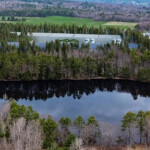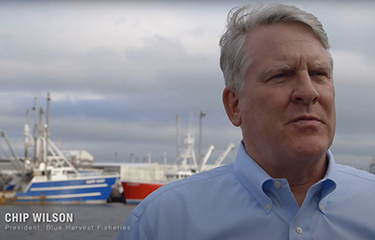Blue Harvest Fisheries is temporarily suspending operations at its processing plant in New Bedford, Massachusettsm U.S.A. as part of an overall strategy shift to “realize potential” of its groundfish operations.
The company announced on 24 March it is planning to continue a shift further into the New England groundfish fishery. It said as part of the shift, it was halting operations at its processing plant, laying off 64 employees, the New Bedford Light reported.
According to the newspaper, employees were given termination letters that said the layoffs will be effective 26 May, and that the action is “expected to be permanent.”
Blue Harvest said since the initial announcement, it received confirmation that MassHire, a Massachusetts government department that offers help with job seeking and training, has activited its rapid response team, and the company is working with them to provide services for the laid-off staff.
In addition to the changes at the processing plant, the company also announced it is shifting its fishing fleet strategy and doubling down on the groundfish fishery. Blue Harvest acquired 12 groundfish vessels and 27 fishing permits from the fleet of Carlos “The Codfather” Rafael, who pleaded guilty in 2017 to falsifying fish quotas, tax evasion, and conspiracy and then subsequently settled a civil case with NOAA that forced him to permanently cease all commercial fishing activity by 31 March, 2020.
Originally, the company said, the plan was to continue using those vessels, and improve and maintain them. However, Blue Harvest said that it has “become clear” that it needs a more-modern fleet and that operating and upgrading the vessels isn’t enough to ensure profitability.
“Blue Harvest will continue to fish these groundfish permits and maintain our existing active vessels, but we will be pivoting our focus to the construction and acquisition of the modern, up-to-date fishing vessels we need to operate in the contemporary, competitive seafood harvesting and production marketplace,” it said.
The company recently acquired a new vessel, originally called the Francis Dawn, and renamed it the Nobska after the company’s former flagship that burned in 2021. The newer vessel was built in 2019, and Blue Harvest said it is working with NOAA to transfer all necessary permits to it.
“When that is accomplished, it will allow us to catch and land the highest-quality groundfish more efficiently,” the company said. “We are also working with a local shipyard, developing plans to build two more vessels based on the Nobska design.”
The overall strategy, which Blue Harvest highlighted in a YouTube video, is to capitalize on New England's groundfish resources.
Blue Harvest President Chip Wilson, in a video addressing the changes, said the company is shifting away from its original strategy of targeting scallops.
“The first steps in building the company were really focused on acquiring assets in the scallop fishery. But as the company came together, management became aware of a unique situation in the groundfish industry. That’s an industry that has been depressed in New England since really the late ‘80s,” he said. “Thanks to some really good fisheries management practices, and unbeknownst to the population at large, the fishery has come back in a strong way. We’re leaving something like 85 to 90 percent of the quota of these species every year in the water.”
Former Blue Harvest CEO Keith Decker told SeafoodSource much the same in February 2020 – and that the New England groundfish fleet left 90 percent of the haddock quota and 92 percent of the pollock quota in the water in 2019.
Wilson said part of the strategy shift will also include using new technology to improve harvests.
“We can take advantage of new technologies to find fish, more selectively harvest fish that we’re looking to catch, and avoid the species that are still under duress and that we want to keep in the water so they can recover,” Wilson said.
He said worker safety for those on board the fishing vessels is another priority of the modernization effort.
“We want to be able to increase the level of safety that we have for our captains and crews when they are out on the water,” Wilson said. “Because this is, at its best of times, a dangerous and challenging job.”
The company said that it plans to resume processing operations in the “not-too-distant future” and that the shift will provide a long-term benefit to the New England groundfish fishery.
“We remain committed to and firm in our belief that great opportunity lies off our New England coast, particularly in the haddock, redfish, and Atlantic pollock fisheries, where Blue Harvest Fisheries holds most of its quota,” the company said. “We are not willing to cede the future of seafood to imports. We believe that a successful future for domestic commercial fishing means employing the safest, climate-friendly, efficient, sustainable vessels for our American fishermen.”
Wilson did not address a potential antitrust probe by the U.S. Department of Justice unearthed by ProPublica in a 2022 report.
Photo courtesy of Blue Harvest







